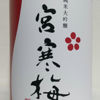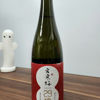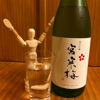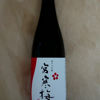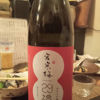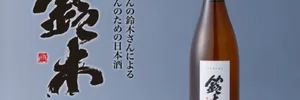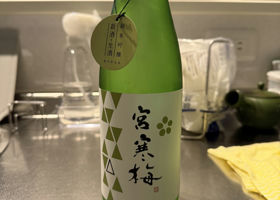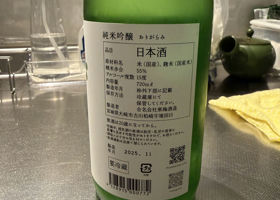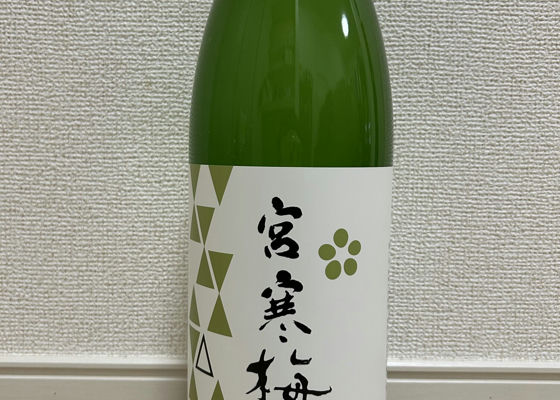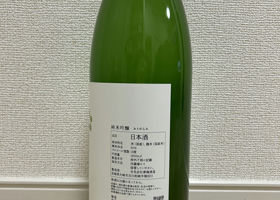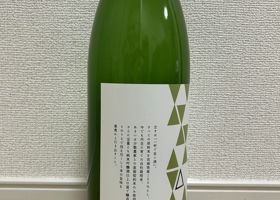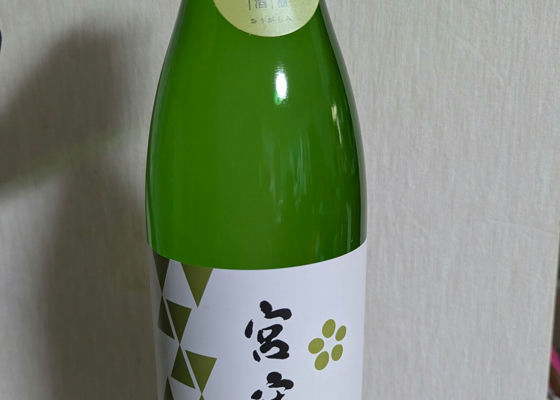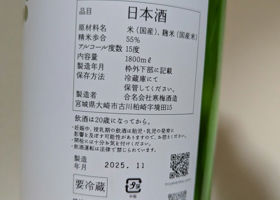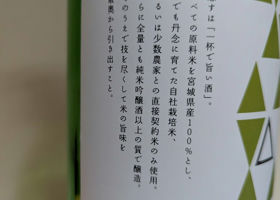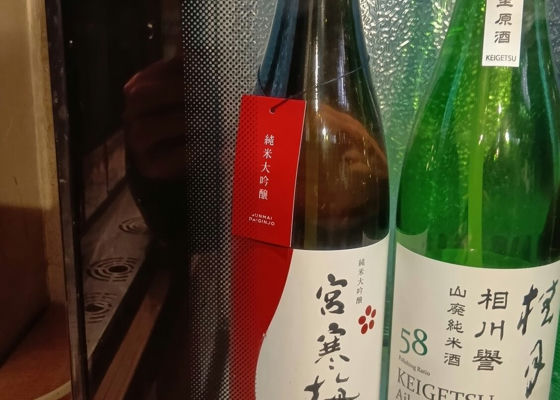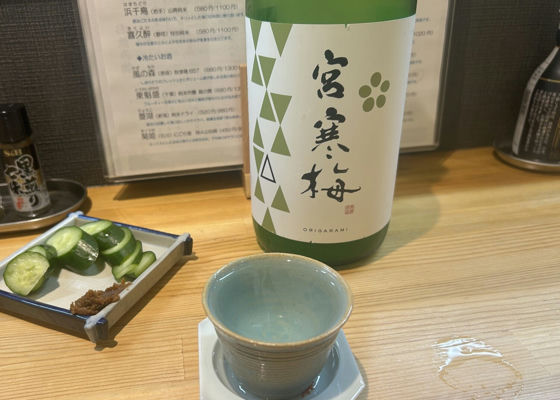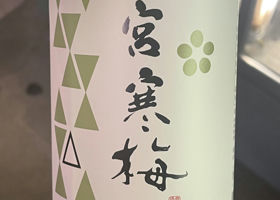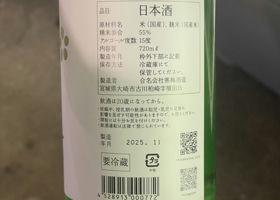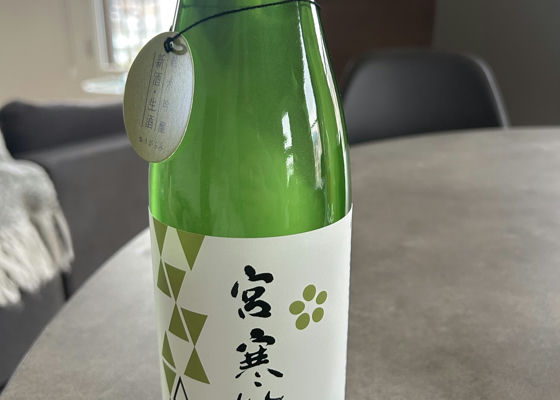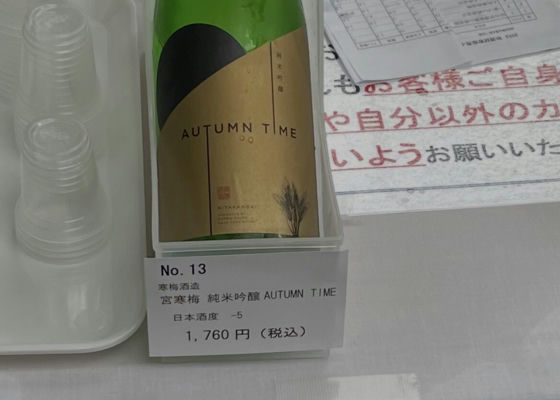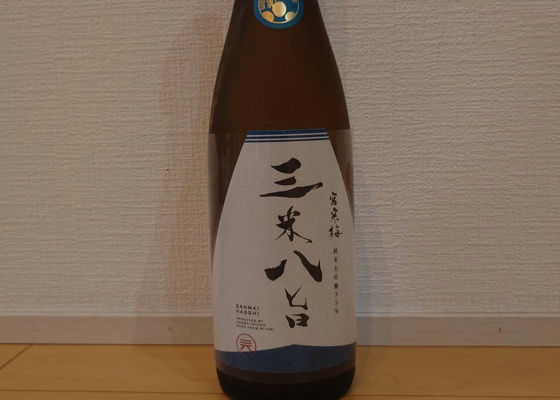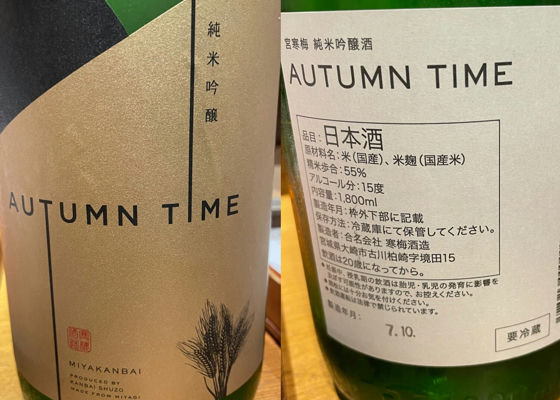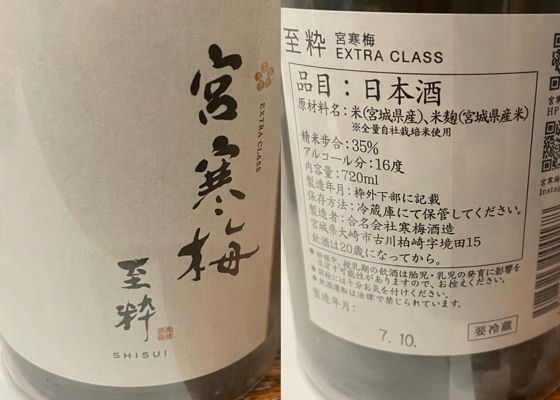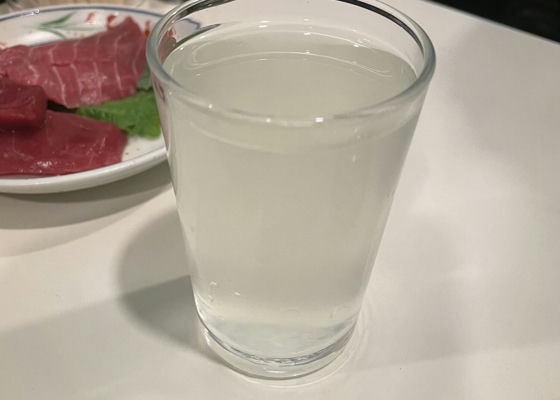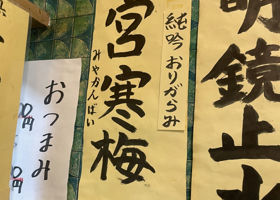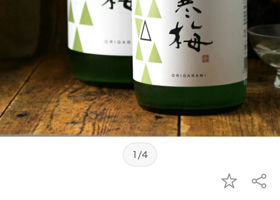宮寒梅純米吟醸 おりがらみ生酒
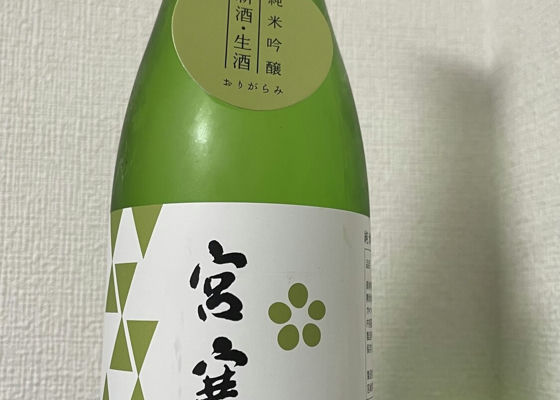
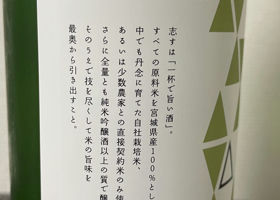
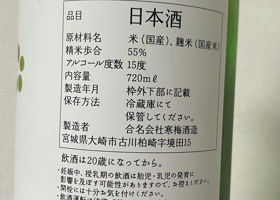
ちぇすたー
I was so impressed with this sake that I bought it last year because my favorite liquor store had it in stock 😊.
I was really looking forward to it because Miyakanmei has a lot of sakes that I like!
I started with the supernatant.
The top nose has a gorgeous pineapple-like aroma 🍍.
The mouthfeel is also gorgeous, with a sweet and sour pineapple aroma on the nose 😊.
It has a strong acidity and umami, with some sweetness, but not as much as expected.
The gasiness is not so strong that you can feel it.
The bitterness and other tastes are very slight, and it finishes with a crisp and clean aftertaste!
After stirring, the flavor and sweetness increase, and you will be impressed that this is the finished product 😍.
The acidity has calmed down a bit and is now balanced out, and the hints of pear and melon type of calm aroma has emerged.
The weight is a little heavy, but it doesn't make you tired of drinking it at all, and once you drink it, you can't stop ✨.
This is impressive 😍.
I think last year the rice polishing ratio was 45%, but this year it's 55%, which makes the taste more robust, but it's also very drinkable and great!
It was definitely one of the best 5 sakes I've had this year! Thanks for the drink 😋.
Japanese>English
ひなはなママ
Good evening, Mr. Chesta!
I'm a little curious about Miyaganbai!
I'm even more interested after reading your review 🤩.
I'm interested in Miyakanme even more after reading your review 🤩 I'll have to try it 👍I'm sure I'll look for it 🥰.
Japanese>English
ichiro18
Good evening, Chiesta 😃.
Miyakanbai is delicious ✨This ogoragami also looks very tasty😍
I've only had one brand, but I was surprised by its perfection 🥰.
Japanese>English
Nao888
Good evening, Mr. Chesta🌛This Miyaganume is delicious🤤💕I received it earlier this spring and remember it being very good🥲It's too bad it's so hard to buy🥲I have to go to the liquor store again to look for it🤤.
Japanese>English
ちぇすたー
Good evening, HinaHanaMama 🌝.
This is badass😍.
It tastes similar to Kangiku's Hoshikai and is a must have for those who love sweet and juicy 😊.
Maybe you can still find it at a distributor....I'm sure 👍
Japanese>English
ちぇすたー
Good evening ichiro18!
Miyakanbai, they have a variety of brands from this fresh new sake to the slightly more classic ones for warming up 😊.
I haven't had all of Miyakanbai's brands yet, but I'm confident that this one is my favorite👍.
Japanese>English
ちぇすたー
Good evening Nao888!
I've been looking for this so much that I've been following the arrival information on the liquor store's website 🤣.
I'm sure there are fewer stores that specialize in Miyakanbai than I thought 💦.
I really want you to try this one 🙏🙏.
Japanese>English
ジャイヴ
Good morning, Mr. Chirsta!
I've had "Miyakanume" before and liked it, but "Orikarami" of it raises my expectations 🥰.
I'll try to find a distributor near me: ✨️
Japanese>English
ちぇすたー
Good evening Mr. Jive 🌝.
It's a great one, it didn't disappoint last year and I drank it all up in 2 days 🤣.
I think you should buy this one👍
I think it probably started showing up at our distributors in the last week or so and should still be available ✨.
Japanese>English

